The symptoms and signs of PTSD can often be difficult to identify. Once an individual identifies the signs and symptoms of PTSD, the next step in the recovery journey become clear.
Understanding PTSD
Learn about PTSD
Some people who have experienced a traumatic event may develop posttraumatic stress disorder (PTSD) when the distressing effects of the event fail to dissipate. Typically, the trauma prompts social, emotional, spiritual, or physical problems, and leads to a decreased sense of wellbeing. The traumatic experience may be a one-time event, or may persist in a chronic pattern, and the types of traumas that may result in PTSD often include:
- Combat
- Sexual or physical abuse
- Rape
- Terrorist attacks
- Serious accidents like an automobile crash
- Natural disasters
- Being assaulted or threatened with a weapon
Events like those listed above can impact large numbers of people, yet not all of these individuals will develop PTSD as a result of trauma. While certainly fear and anxiety may occur temporarily, some people will experience more acute symptoms including the inability to experience pleasure, depression, exaggerated anger and hostility, or dissociative symptoms. When these severe symptoms persist long after the activating circumstance or event, it is likely that the individual is showing signs of the onset of PTSD and will require professional help in the form of quality treatment.
Statistics
PTSD statistics
Overall, in the U.S. the yearly incidence rates for PTSD have been estimated at about 3.5%. However, for those who have lived through traumatic events such as active military combat, captivity (POW), rape, or ethnic or political genocide, rates of PTSD have been estimated at 50%.
Causes and Risk Factors of PTSD
Riskfactors and causes of PTSD
While there is no definitive answer to the question of what causes PTSD, there is some evidence indicating certain factors play a significant role in the development of the disorder. These include a variety of genetic and environmental elements.
Genetic: Those who have pre-existing mental health conditions such as depression or anxiety appear to be more likely to develop PTSD than those without such a history. Also, evidence indicates that individuals who develop PTSD display decreased levels of cortisol and increased levels of epinephrine and norepinephrine. These three brain chemicals are linked to the fight-or-flight response which occurs in response to fear, and could play a role in the re-triggering of traumatic events. Certain heritable, temperamental qualities appear to be associated with the development of PTSD. These include behavioral inhibition, neuroticism, emotional reactivity, and introversion.
Environmental: Life experience plays an important role in the development of PTSD. Those who have a history of significant stress and trauma are more likely to develop PTSD after the experience of a major trauma than those without a similar history.
Signs and Symptoms
Signs and symptoms of PTSD
It is normal to experience distress after a traumatic incident, but if the symptoms last for more than three months after the activating event, the individual may be experiencing PTSD.
PTSD behavioral symptoms: An experience of unhealthy hypervigilance, hyperarousal can lead to trouble sleeping, concentrating, or an exaggerated startle response. For example, one may feel the need to always have his or her back to a wall to monitor everything happening in the vicinity so as to protect him or herself from a hypothetical attack.
Psychological symptoms: One may begin to view him or herself in negative ways and experience a lowered sense of self-worth and self-esteem. Further, one may also come to view the world as an entirely dangerous place and feel that nowhere is safe.
Cognitive symptoms: Sometimes referred to as a flashback, an individual with PTSD may relive the traumatic experience via nightmares or intrusive thoughts or memories. This can be triggered by something unanticipated that reminds him or her of the event.
Psychosocial symptoms: Almost anything can cause a memory or flashback, so avoidance of known triggers becomes worse over time, typically resulting in increased isolation, sometimes with the individual refusing to leave the house.
Effects
Effects of PTSD
There are numerous consequences associated with untreated and unmanaged PTSD, including the following:
- Depression
- Substance abuse
- Eating disorders
- Survivor guilt
- Dissociation
- Sleep problems
- Difficulty concentrating
- A sense of hopelessness over the future
- Suicidal thoughts and behaviors
- Cardiovascular disease
- Chronic pain
- Depressed immune system
- Anger outbursts, aggression, and violence (may be the result of flashbacks)
- Avoidance of social situations
- Problematic family relationships
- Marital discord or divorce
- Decreased productivity at school or work
- Unemployment
- Loss of financial security
Co-Occurring Disorders
PTSD and co-occurring disorders
Many people who have PTSD suffer from mental health disorders. Common co-occurring disorders include the following:
- Anxiety disorders
- Depressive disorders
- Bipolar disorder
- Substance use disorder
- Conduct disorder in childhood or adolescence


